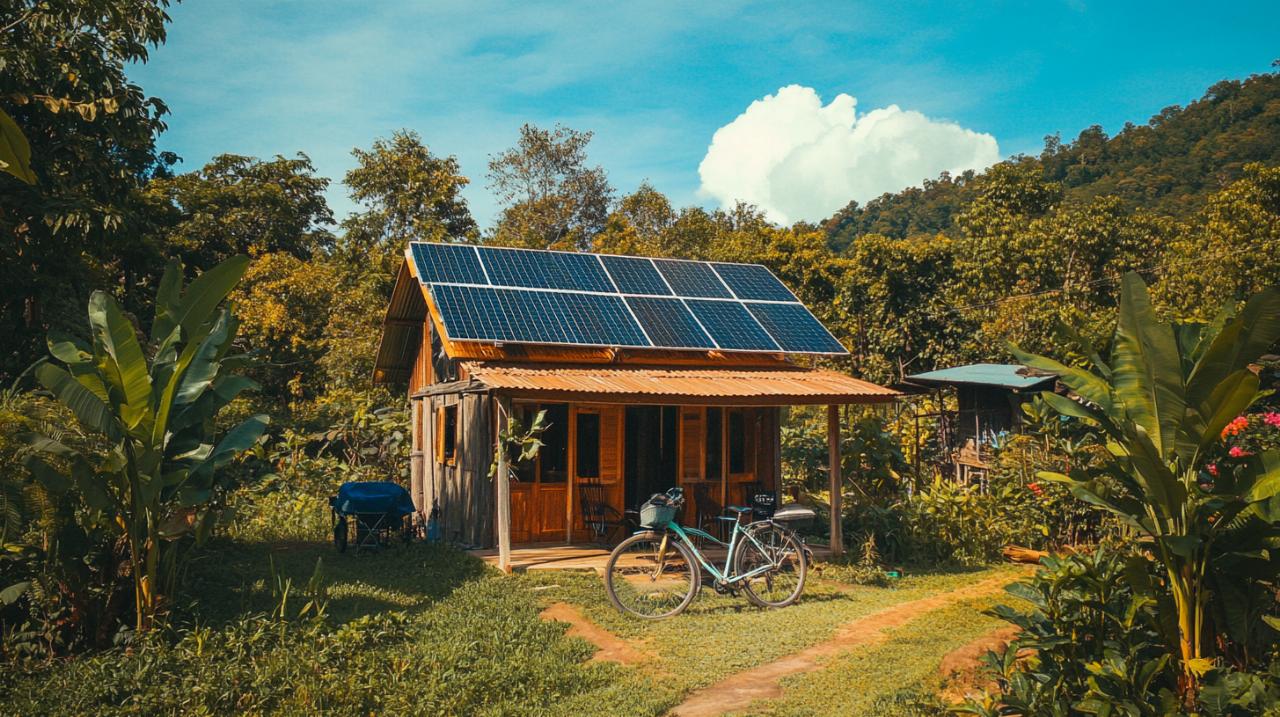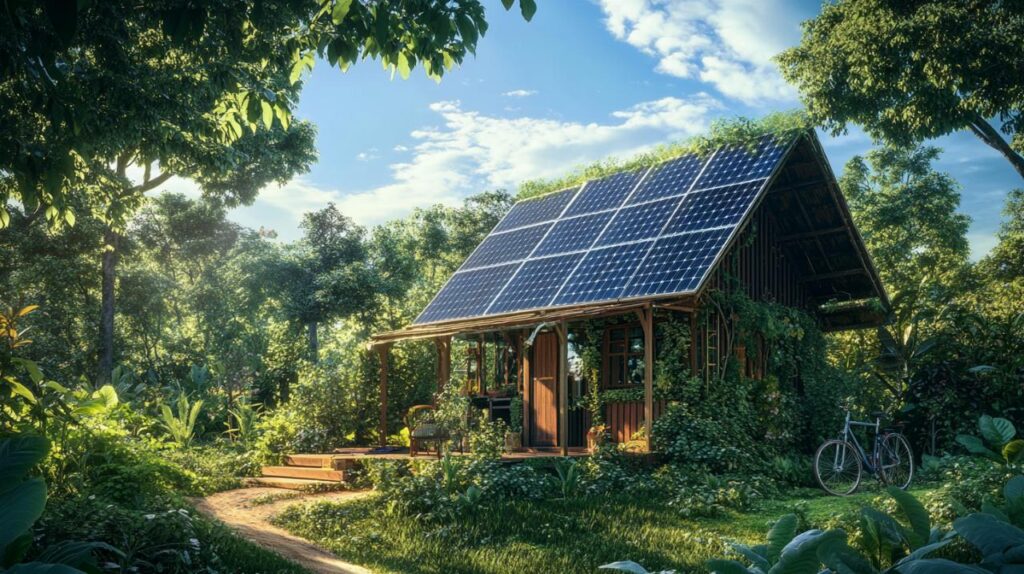More and more people across the United Kingdom are searching for ways to reduce their environmental impact and live a lifestyle that is kinder to the planet. Whether you are just starting out or looking to deepen your commitment, there are countless practical steps that can be woven into your daily routine. Embracing sustainable living ideas means making conscious choices that benefit not only the environment but also future generations, and it is far more achievable than many assume.
Reducing single-use plastics and everyday waste
One of the most immediate ways to make a difference is by cutting down on single-use plastics. These materials contribute significantly to pollution, with millions of tonnes ending up in our oceans every year. By making simple swaps in your day-to-day life, you can dramatically reduce the amount of plastic waste you generate. The good news is that these changes do not require a complete overhaul of your habits, just a bit of forward thinking and a willingness to embrace alternatives.
Making the Switch to Reusable Essentials
Replacing disposable items with reusable alternatives is a straightforward yet powerful step. Consider carrying a refillable water bottle instead of buying bottled water, which not only cuts down on plastic but also saves you money over time. Likewise, investing in a sturdy shopping tote and a travel mug for your morning coffee can eliminate the need for countless plastic bags and disposable cups. These reusable essentials quickly become part of your routine, and you will find that remembering to bring them along soon feels second nature. Many cafes and shops across the country now offer discounts to customers who bring their own containers, adding an extra incentive to make the switch.
Smart food storage and composting solutions
Food waste is another area where households can make significant progress. Planning your meals in advance and storing ingredients properly can help ensure that fresh produce and leftovers do not go to waste. Using airtight containers and keeping your fridge organised means you are less likely to forget about items tucked away at the back. Composting is an excellent way to deal with unavoidable scraps such as vegetable peelings and coffee grounds. By building a compost heap in your garden or using a countertop compost bin, you can turn organic waste into nutrient-rich soil that benefits your plants. This practice not only reduces the amount of rubbish sent to landfill but also closes the loop on your food cycle, making your home more self-sufficient.
Water and Energy Conservation at Home
Conserving water and energy at home is not just about lowering your bills, although that is certainly a welcome benefit. It is also about recognising that natural resources are finite and that every small action contributes to a larger collective effort. The choices you make in your daily routines can have a lasting impact on the environment, and many of these changes are surprisingly simple to implement.
Simple water-saving strategies for every household
Reducing water consumption can be as easy as taking shorter showers and fixing dripping taps as soon as they appear. Installing water-saving gadgets such as low-flow showerheads and dual-flush toilets can make a noticeable difference without compromising on comfort. In the garden, consider using drought-resistant plants and collecting rainwater in a barrel to irrigate your flowerbeds and vegetable patches. These measures not only conserve a precious resource but also help you become more mindful of how much water you use each day. It is remarkable how quickly these habits become ingrained, and you may find that your household water usage drops significantly over the course of a few months.
Cutting your energy bills whilst helping the planet
Energy efficiency is another cornerstone of sustainable living. Switching to LED lighting can reduce your carbon emissions substantially, and these bulbs last far longer than traditional ones. Making sure that appliances are turned off at the wall when not in use prevents them from drawing power on standby, a habit that can save both energy and money over the year. Upgrading to energy-efficient appliances when your old ones reach the end of their lifespan is a smart investment that pays dividends in the long run. For those looking to take things further, installing solar panels or considering a heat pump can transform your home into a more self-sufficient and environmentally responsible space. Insulating your loft and cavity walls, along with fitting double or triple glazing, will keep your home warmer in winter and reduce the need for excessive heating. Draught-proofing doors and windows, using radiator foil, and investing in a smart thermostat are all practical steps that contribute to a more energy-efficient household.
Sustainable shopping and consumer choices
The products you buy and the companies you support have a direct impact on the environment. By choosing to shop more sustainably, you send a clear message that ethical practices and environmental responsibility matter. This does not mean giving up on quality or convenience, but rather being more deliberate about where your money goes and what values you want to uphold.
Choosing local, organic, and ethical products
Opting for local and seasonal produce is a great way to reduce the carbon footprint associated with transporting goods over long distances. Farmers’ markets and local farm shops often stock organic products that are grown without harmful pesticides, benefiting both your health and the environment. Fair trade items ensure that the people who produce the goods you enjoy are paid fairly and work in safe conditions. When it comes to clothing, avoiding fast fashion and choosing garments made from natural fabrics can help reduce the environmental toll of the textile industry. Buying second-hand furniture and clothes is another excellent option, as it extends the life of items that might otherwise end up in landfill. By being more selective about what you purchase and where it comes from, you contribute to a more sustainable economy and encourage businesses to adopt greener practices.
Supporting businesses with environmental values
Many companies are now taking steps to operate more sustainably, and some have achieved certification as B Corporations, which means they meet rigorous standards of social and environmental performance. By choosing to spend your money with these businesses, you are helping to drive demand for responsible practices across the market. Look out for brands that are transparent about their supply chains, use renewable energy, and invest in reducing waste. Even small choices, such as selecting products with minimal packaging or opting for biodegradable alternatives, add up over time. The more consumers demand sustainable options, the more likely it is that companies will continue to innovate and improve their environmental credentials.
Greener transport and reducing your carbon footprint
Transport is one of the biggest contributors to carbon emissions, but there are plenty of ways to reduce your impact when it comes to getting around. Whether you are commuting to work, running errands, or planning a holiday, considering the environmental cost of your travel choices can lead to meaningful change.
Embracing active travel and public transport
Walking and cycling are not only great for the environment but also beneficial for your health and wellbeing. For shorter journeys, leaving the car at home and opting for a bike or a brisk walk can make a significant difference to your carbon footprint. Public transport is another excellent alternative, and many cities and towns across the UK are improving their bus and train networks to make them more accessible and convenient. If driving is unavoidable, consider carpooling with colleagues or neighbours to reduce the number of vehicles on the road. For those in a position to do so, switching to an electric vehicle can help cut down on emissions, and the infrastructure for charging is expanding rapidly across the country.
Offsetting emissions through trees and renewable energy
When it comes to longer journeys, particularly air travel, offsetting your carbon emissions by supporting tree-planting projects or renewable energy initiatives can help balance out the environmental cost. While this is not a perfect solution, it is a step in the right direction and demonstrates a commitment to taking responsibility for your impact. Choosing train travel over flying for domestic or European trips is another way to reduce emissions, and it often allows you to enjoy the journey and the scenery along the way. If you do need to fly, packing light can help reduce the weight of the aircraft and therefore the fuel consumption, and unplugging devices at home before you leave can prevent unnecessary energy use while you are away.
Minimalism and proper recycling practices
Adopting a more minimalist approach to life can have surprising benefits for both your mental wellbeing and the environment. By focusing on quality over quantity and being more intentional about what you bring into your home, you can reduce waste and live more sustainably. Proper recycling practices are also essential to ensure that the materials you do discard are processed correctly and do not end up in landfill.
Decluttering Your Home for a Simpler Life
Taking the time to declutter your home can be a liberating experience. By donating or selling items you no longer need, you give them a second life and prevent them from contributing to waste. Embracing minimalism does not mean living without the things you love, but rather being more selective and mindful about what you keep and what you let go. This shift in mindset can also influence your future purchasing decisions, encouraging you to think twice before buying something new and to consider whether you truly need it or if there is a more sustainable alternative available.

Getting your recycling sorted properly
Recycling is a fundamental part of sustainable living, but it is important to do it correctly. Different councils have different rules about what can and cannot be recycled, so taking the time to understand your local guidelines is crucial. Rinsing out containers, removing lids, and separating materials can all help ensure that your recycling is processed efficiently. Avoiding contamination of recycling bins by keeping non-recyclable items out is also important, as this can lead to entire batches being sent to landfill. By getting into the habit of sorting your waste properly, you play a vital role in reducing the environmental impact of household rubbish and supporting the recycling industry.

